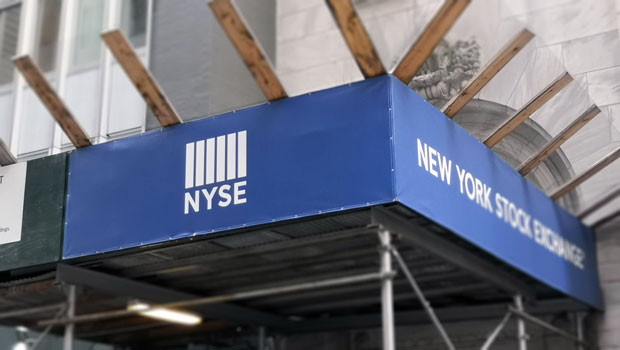US close: Dow Jones ends session more than 900 points weaker

Wall Street stocks closed sharply lower on Friday following the publication of some big tech earnings overnight and a number of key data points throughout the session.
At the close, the Dow Jones Industrial Average was down 2.77% at 32,977.21, while the S&P 500 was 3.63% weaker at 4,131.93 and the Nasdaq Composite saw out the session 4.17% softer at 12,334.64.
The Dow closed 939.18 points lower on Friday, easily reversing gains recorded in the previous session.
In the corporate space, Amazon shares slid after the eCommerce giant posted earnings that failed to meet expectations and issued revenue guidance that fell short of analysts' estimates. Amazon said on Thursday that first-quarter adjusted earnings per share of $7.38 each, short of the $8.36 expected on the Street, driven by a $7.6bn loss on its Rivian investment after shares in the electric vehicle maker shed more than half their value during the period.
Also in focus, Apple stock traded lower after the iPhone maker warned of a potential $8.0bn hit to its bottom line as a result of supply chain constraints.
No major corporate earnings were released on Friday.
On the macro front, a jump in inflation last month meant that Americans spent less when measured in real terms, although prices rose a tad less quickly than anticipated. According to the Department of Commerce, personal incomes grew at a month-on-month clip of 0.5% in March and expenditures by 1.1%. That was better than gains of 0.4% and 0.6%, respectively, that economists had pencilled-in.
Elsewhere, the broadest measure of inflationary pressures in the US jobs market jumped more than forecast last month as benefits exploded. According to the Department of Labor, in seasonally adjusted terms, the Employment Cost Index increased at a quarter-on-quarter pace of 1.4% (consensus: 1.1%). In annual terms, total compensation in the US grew by 4.5% in March, versus 4.0% one year ago.
Still on data, the Chicago purchasing manager's index decreased to 58.5 points in April, down from 65.9 in March to miss market forecasts of 62, according to the Institute for Supply Management. April's print was the lowest reading since November 2020, pointing toward a slowdown in economic activity.
Finally, the University of Michigan's consumer sentiment index increased to 65.20 points in April, up from 59.40 points in March.